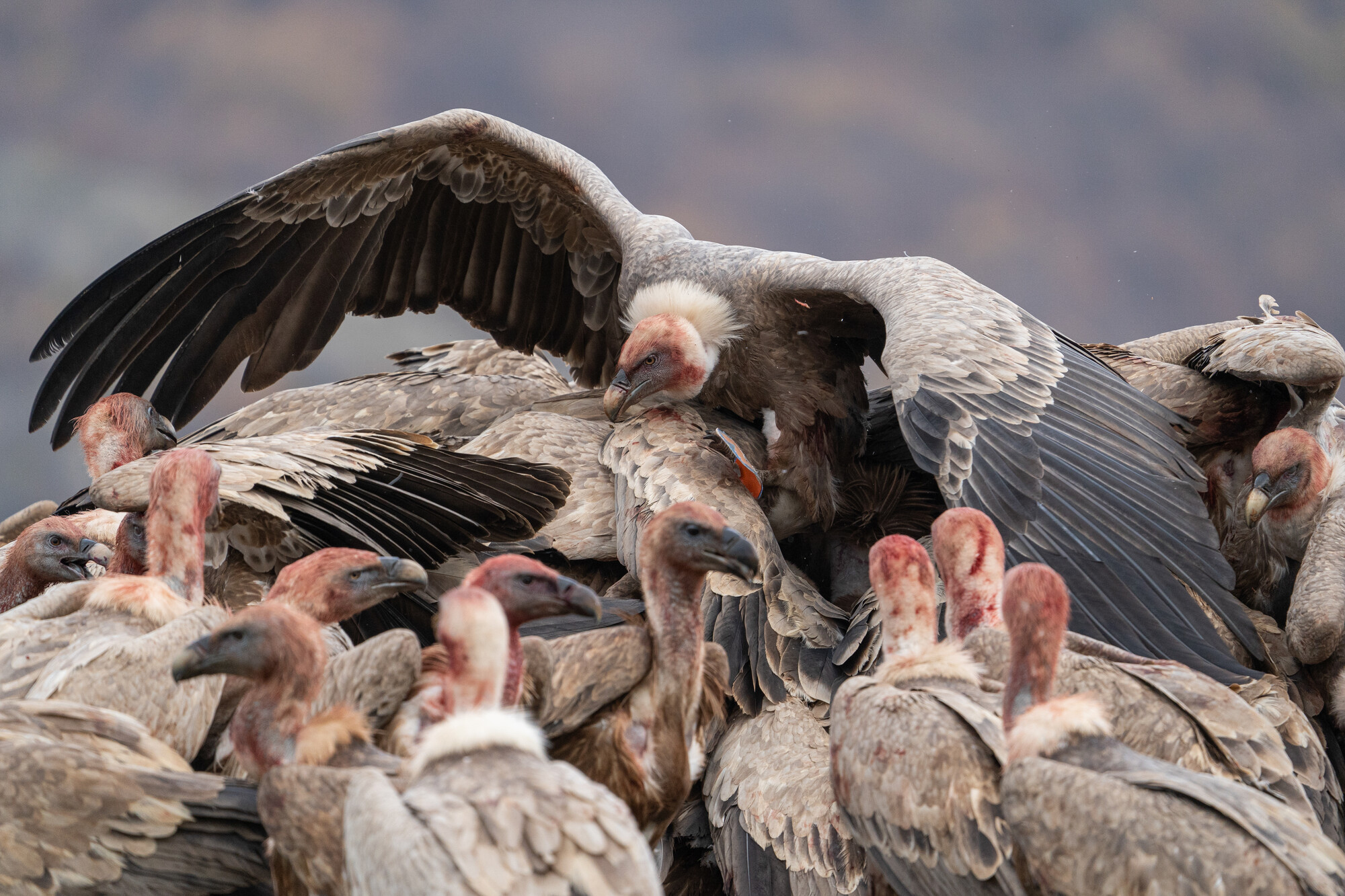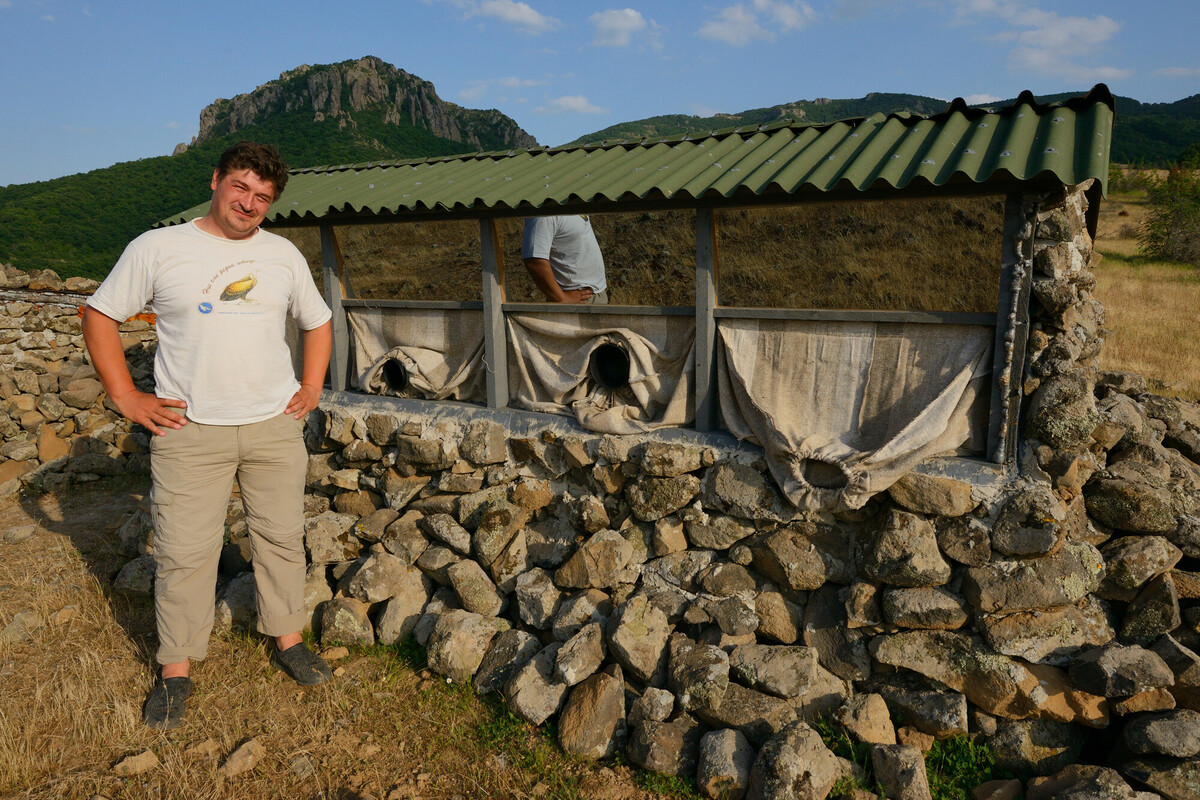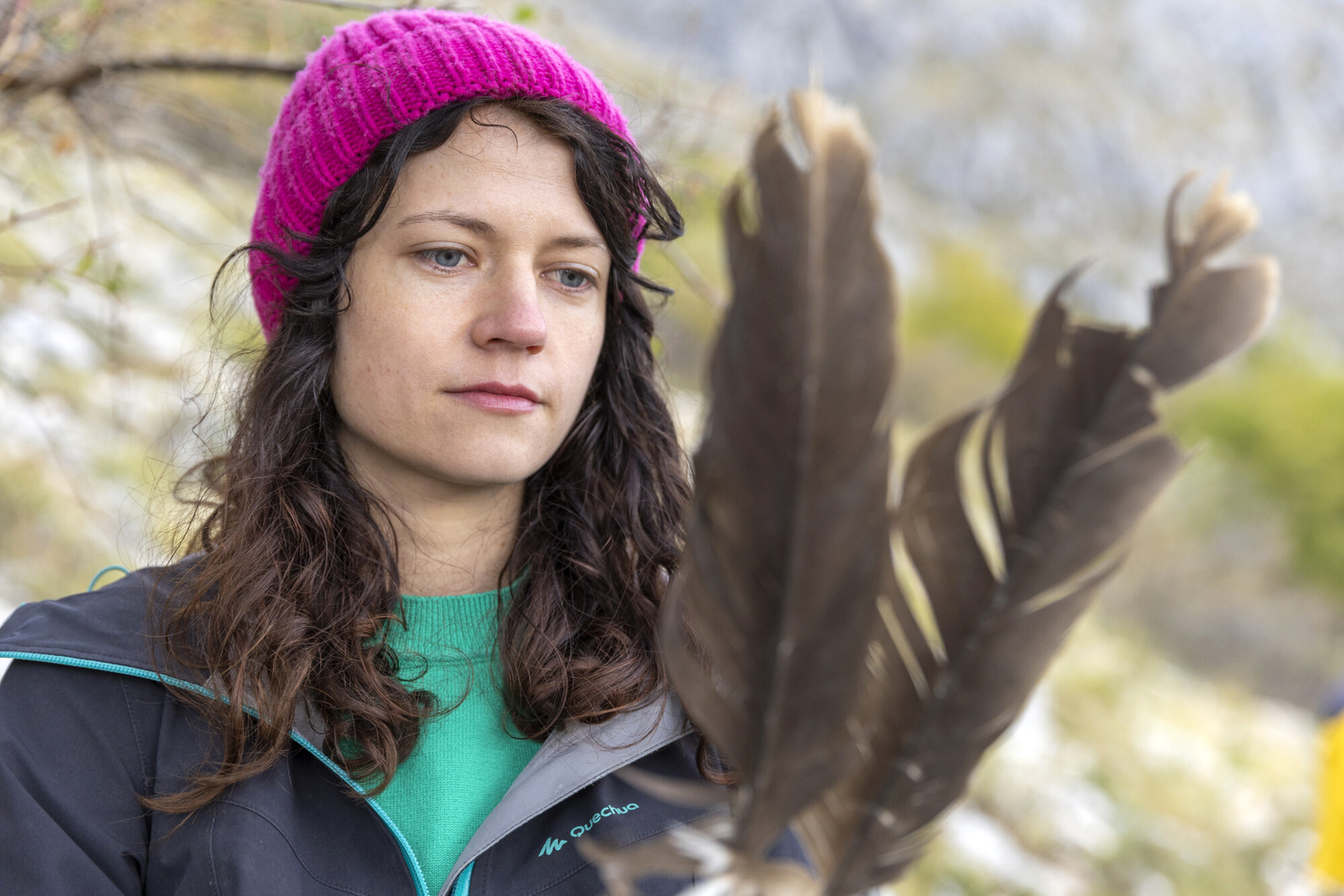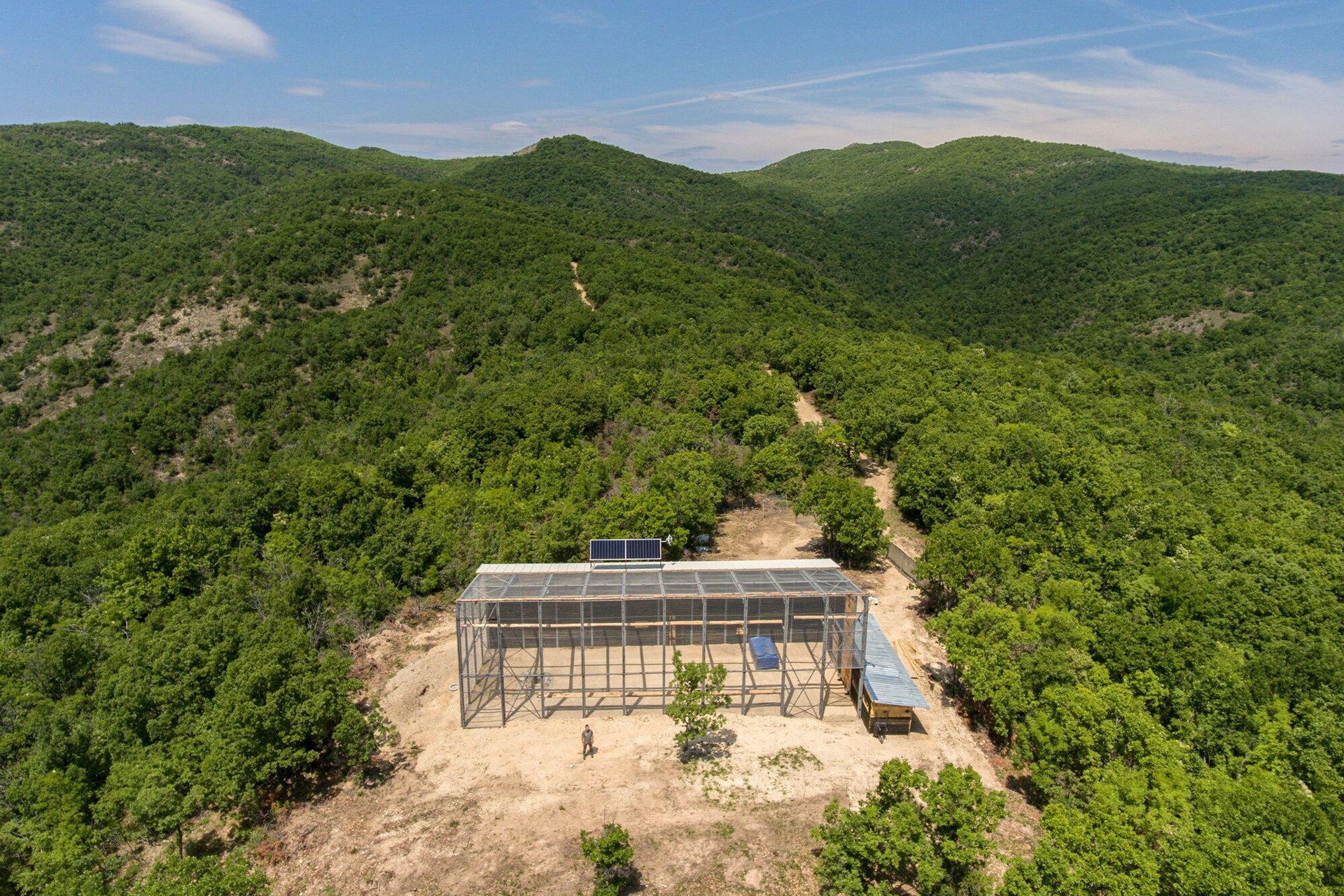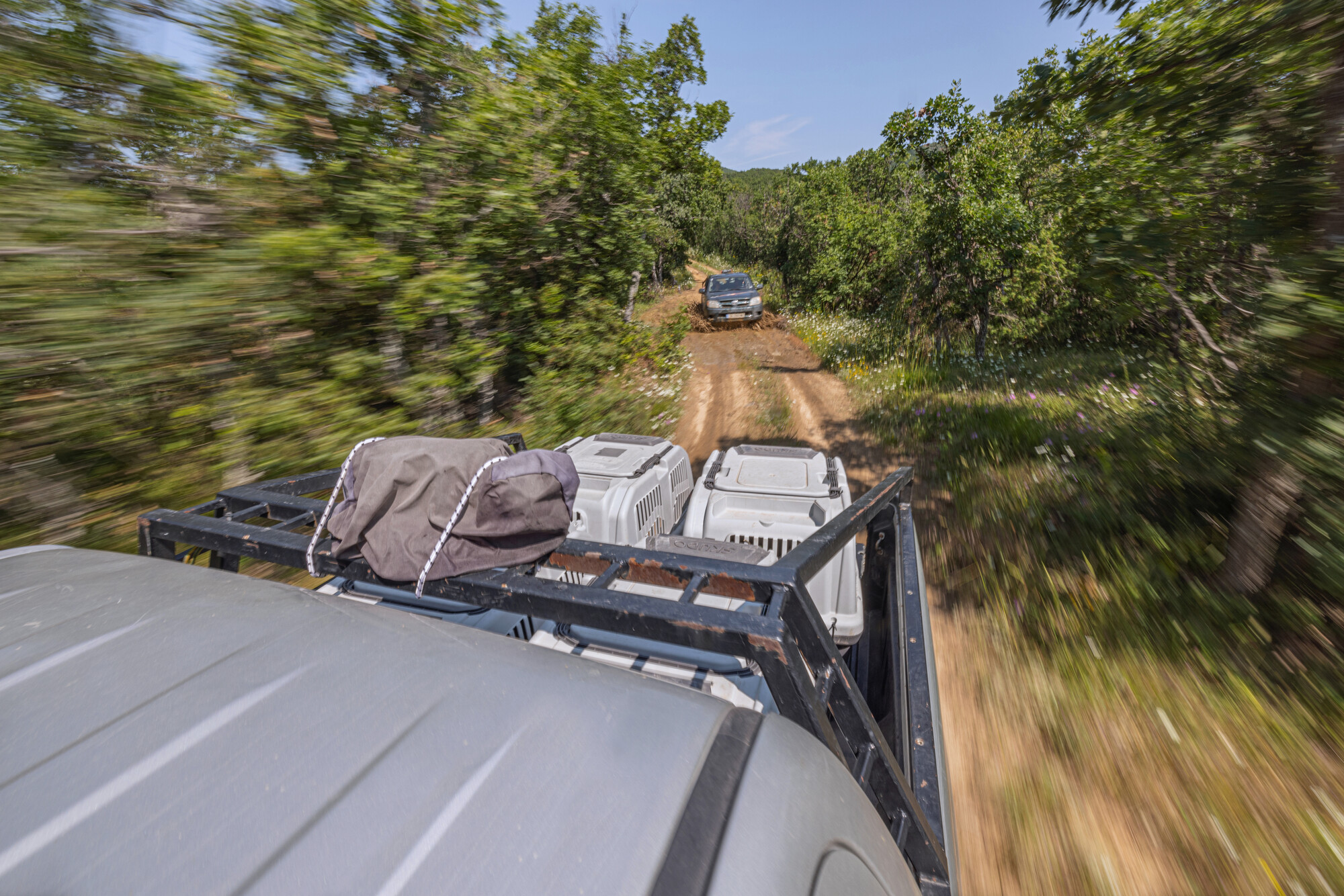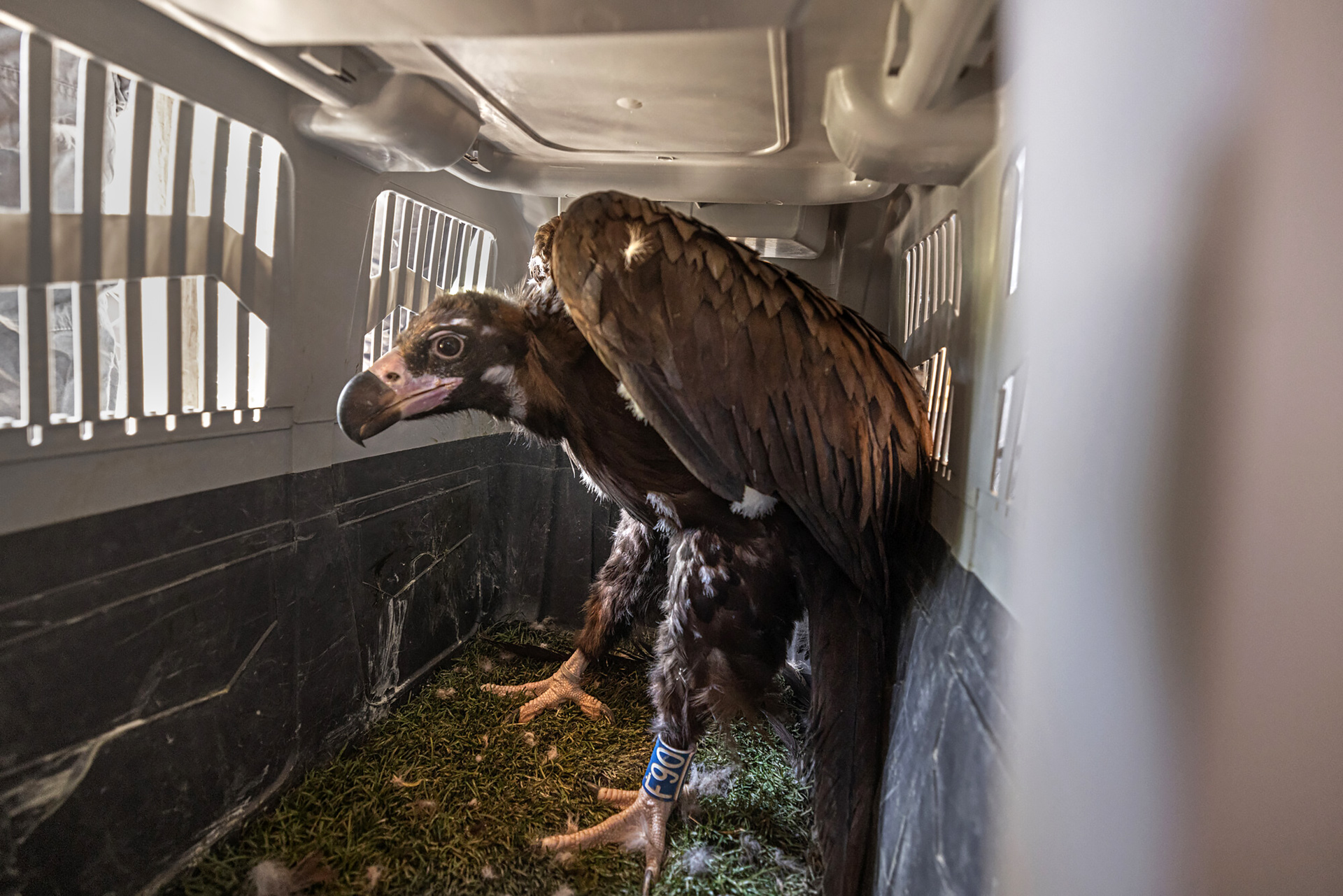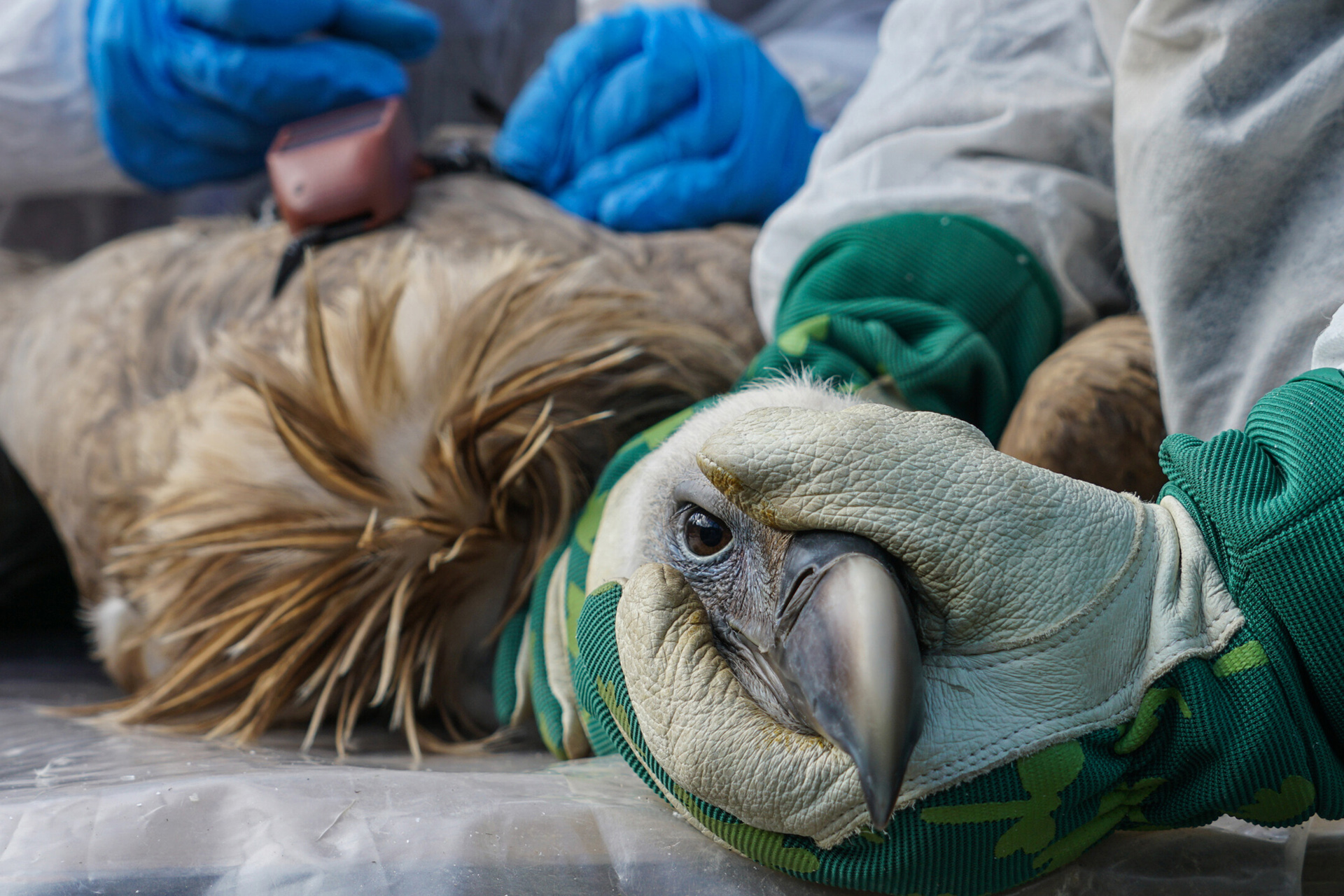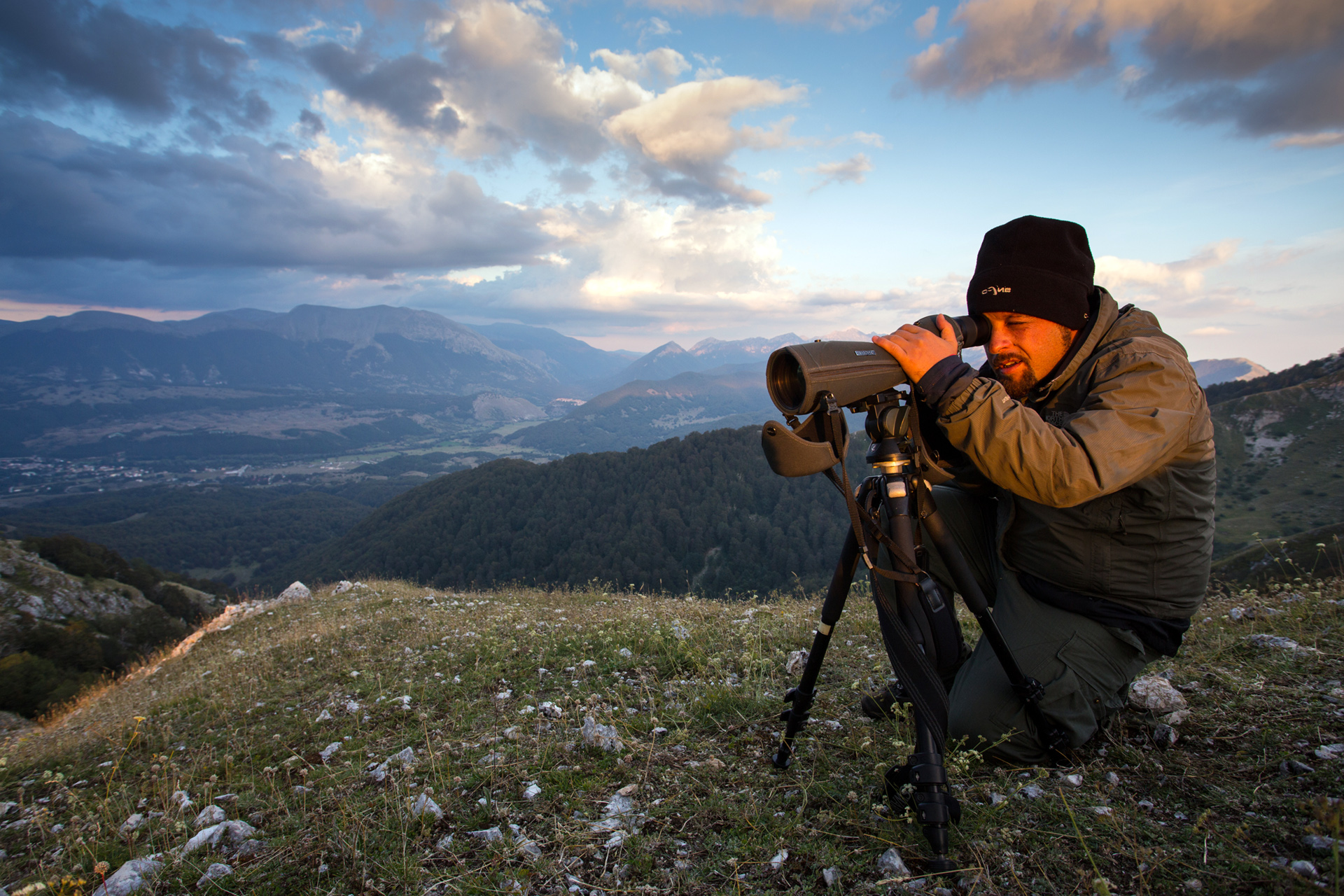Rewilding Europe has signed a new partnership agreement with Spanish NGO GREFA. The partners will continue to work together to scale up the reintroduction of vultures and other keystone bird species across Europe, delivering wide-ranging benefits for nature and people.
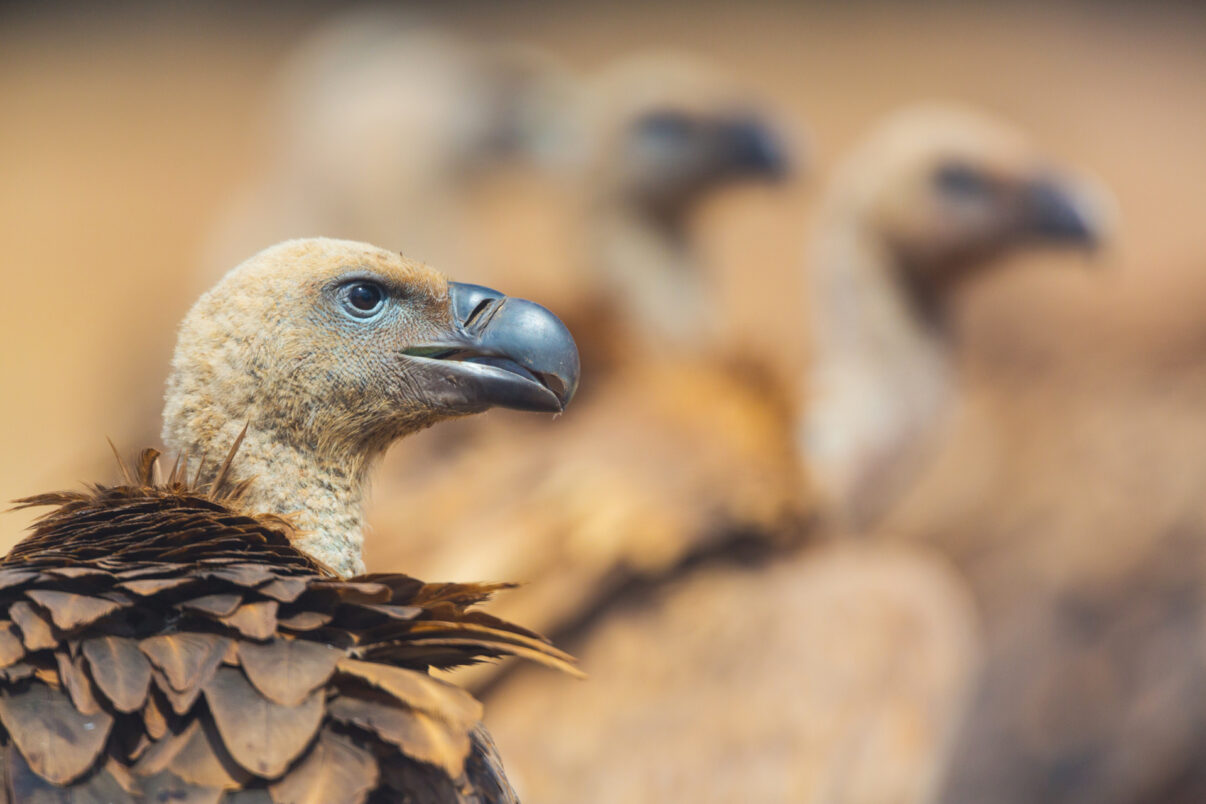
Securing a better future for European scavengers
Rewilding Europe has signed a five-year partnership agreement with GREFA (Grupo de Rehabilitación de la Fauna Autóctona) to support the conservation and comeback of vultures and other keystone bird species across Europe. Founded in 1981, the hugely experienced Spanish NGO works to rehabilitate wildlife, runs captive breeding programmes so that endangered species such as vultures and other raptors can be reintroduced into the wild, and oversees their reintroduction into European landscapes.
The agreement builds on highly productive collaboration between the organisations to date, which has seen vultures and a range of other raptors released in Rewilding Europe’s rewilding landscapes and other areas across the continent. Many of these releases have been supported by Rewilding Europe’s European Wildlife Comeback Fund, which works to scale up keystone species reintroduction and population reinforcement across Europe.
“As scavengers, vultures and other keystone bird species play a critical ecological role, enhancing the health, resilience, and functionality of ecosystems, while delivering wide-ranging benefits to people and nature.”

Sophie Monsarrat
Rewilding Europe’s Rewilding Manager
“As scavengers, vultures and other keystone bird species play a critical ecological role, enhancing the health, resilience, and functionality of ecosystems, while delivering wide-ranging benefits to people and nature,” says Rewilding Europe’s wildlife expert Sophie Monsarrat, who oversees the comeback fund. “In many places in Europe, however, populations of these species are degraded or absent. This partnership aims to secure a better future for scavengers across the continent.”
“Many of the species we work with do not recognise borders, which is why international collaboration is essential to restore their populations,” adds GREFA President Ernesto Álvarez. “Our joint work with Rewilding Europe will allow us to expand our activities and extend the reach of the initiatives we develop.”

Supporting vulture comeback
Vultures play a critical role maintaining healthy ecosystems by acting as nature’s clean-up crew. By consuming animal carcasses, they prevent the spread of disease and help to recycle nutrients. Their ability to rapidly dispose of dead animals also reduces the risk of bacterial and viral outbreaks that could affect wildlife, livestock, pets, and potentially humans. In many places, the recovery of these iconic scavengers is attracting vulture watchers in growing numbers, benefitting local communities through the development of nature-based economies.
Two centuries ago, Egyptian, bearded, cinereous and griffon vultures were among the most common breeding bird species in central and southern Europe. Yet a decreasing availability of food, coupled with habitat loss, persecution and poisoning, saw vultures disappear from most European countries. Thanks to reintroductions and species protection, European vulture populations are now slowly but steadily recovering, but continued support is critical – the birds still face multiple threats and challenges, such as illegal poisoning and a lack of food. The isolated nature of many breeding populations and low productivity rate of the species makes the task of ensuring their long-term survival even greater.
Wide-ranging measures
Moving forwards, Rewilding Europe and GREFA will work together to create, restore, and maintain healthy populations of vultures, other scavengers, and keystone bird species in Europe, in places where they naturally occur or should occur. They will join forces in a range of areas.
In collaboration with Rewilding Europe’s local partners, GREFA will continue to support Rewilding Europe with vulture and scavenger reintroduction programmes within our rewilding landscapes. Such support will include performing feasibility studies, providing technical advice on the design of aviaries and feeding stations, supplying birds and overseeing their transport and release, and advising on monitoring. The two partners will also work together on fundraising and promoting vulture comeback in Europe, addressing the important issue of increasing the availability of carcasses in nature as a vital source of food for vultures and other scavengers.
GREFA and the partners of GREFA are encouraged to apply to the European Wildlife Comeback Fund. To optimise support, GREFA and Rewilding Europe will meet annually to review upcoming reintroduction plans in Europe, and prioritise them in view of submitting applications. Applications to the fund made in collaboration with Rewilding Europe’s landscape partners will enjoy a streamlined application process.
Productive collaboration
Rewilding Europe and GREFA have enjoyed a long and mutually beneficial relationship. The European Wildlife Comeback Fund has already supported GREFA with the release of cinereous vultures in Sierra de la Demanda in Spain, red kites in Cazorla Natural Park (also in Spain), and Bonelli’s eagles in Sardinia.
The new partnership agreement with GREFA will ensure the supply of cinereous vultures for reintroduction in the Rhodope Mountains rewilding landscape in Bulgaria, with the European Wildlife Comeback Fund supporting the release of six vultures here in 2024, through the Spanish NGO. With the support of the fund, GREFA are also supplying griffon vultures for release in the Central Apennines rewilding landscape in Italy later this year, to augment and strengthen the current population. Last but not least, experts from GREFA are providing advice for the upcoming reintroduction of griffon vultures in the Southern Carpathians rewilding landscape in Romania, with the NGO set to provide birds for release here. In 2023, Rewilding Europe provided financial support to GREFA to increase the size of their aviary in Madrid, allowing them to supply more vultures for release in these landscapes.
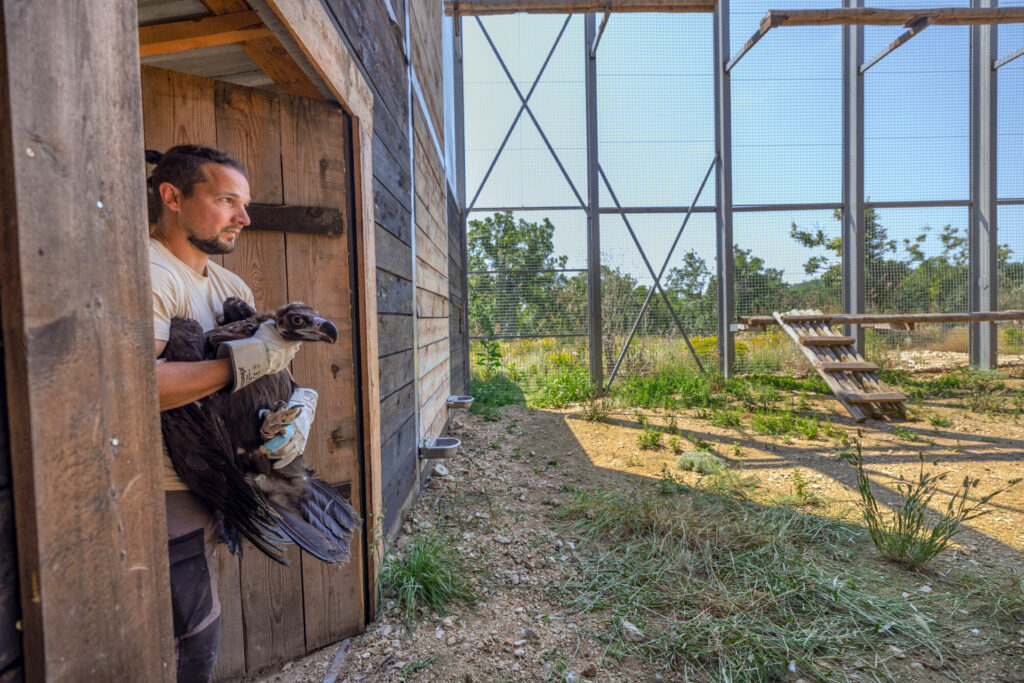
Let’s rewild together
The agile setup of the European Wildlife Comeback Fund is designed to support wildlife comeback in a convenient and flexible way. Rewilding Europe invites other initiatives working to reintroduce keystone species in European landscapes to consider applying for a grant.
Those interested in contributing to wildlife recovery in Europe can support wildlife comeback with an online donation. If you’d like to invest more than 50,000 euros in the European Wildlife Comeback Fund, we’d love to get in touch with you personally.
Want to know more?

